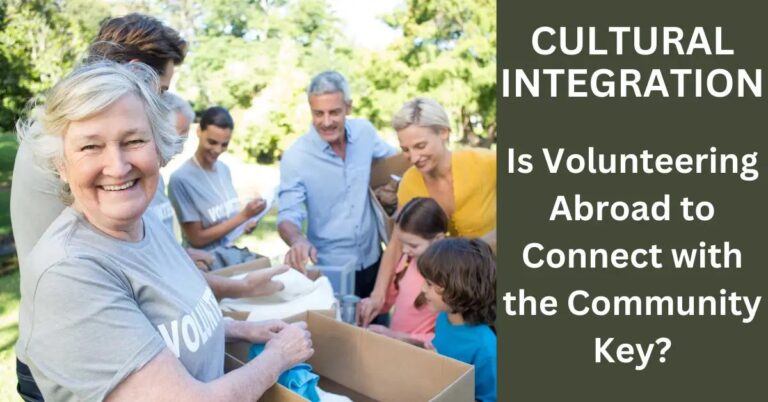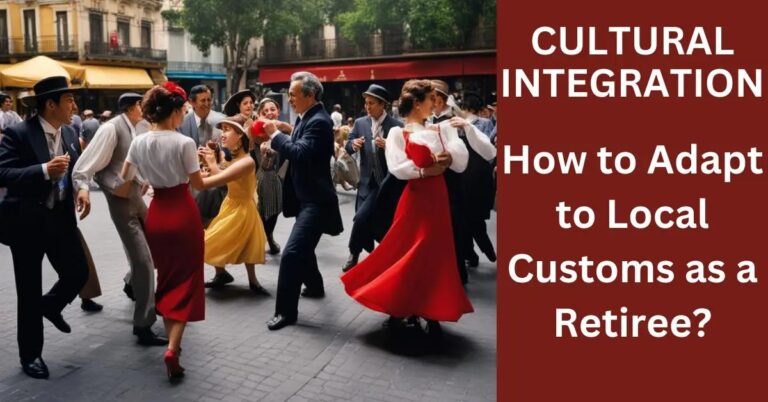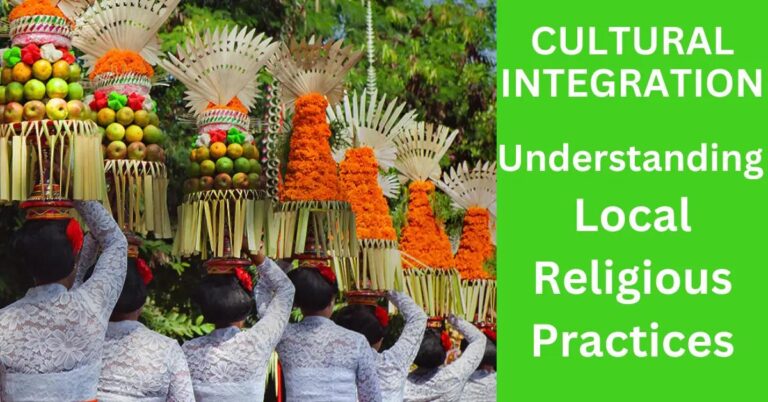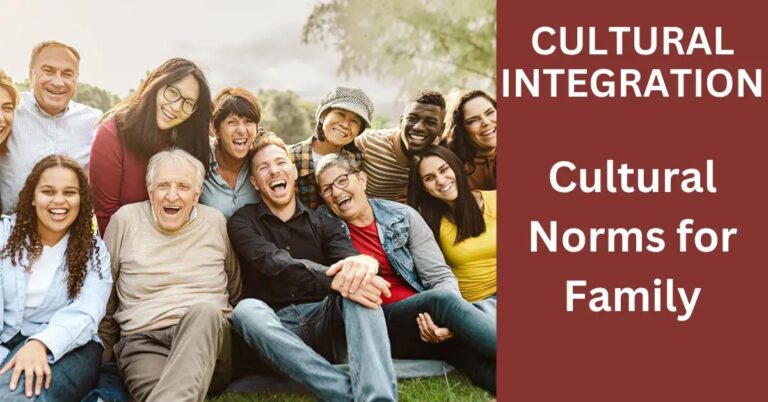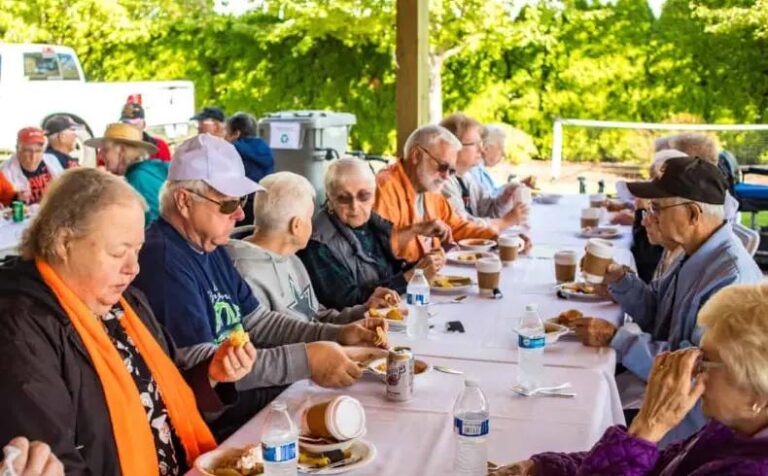TL;DR:
- Cross-cultural friendships in retirement reduce loneliness, enhance mental sharpness, and improve empathy.
- Making friends post-retirement involves joining clubs, attending events, volunteering, and engaging online.
- Friendships improve health, extend lifespan, and make retirement fulfilling.
- Embracing diversity involves joining multicultural communities and learning tolerance.
- Intercultural interactions enhance cultural awareness and foster social bonds.
- Senior travel encourages shared experiences and cultural exchanges.
- Cultural events provide social engagement and broaden understanding.
- Diverse interactions prevent loneliness by forming supportive networks.
- Technology fosters senior friendships by bridging distance and enhancing communication.
- Language learning benefits seniors mentally and socially and enhances travel experiences.
- Cultural sensitivity enriches senior communities, fostering respect and inclusivity.
- Seniors benefit from engaging with various cultural experiences and perspectives.
- Breaking stereotypes in senior life provides personal growth and enriches social connections.
Retirement brings a chance to build friendships that cross cultures and unite worlds. But why should we bother? As a retired global nomad, I have found that these friendships enrich life in surprising ways. They boost mental health, build support systems, and offer deeper cultural understanding. Let's explore why cross-cultural connections in our golden years are more than just beneficial—they're essential for a fulfilling retired life.
Cross-Cultural Friendships in Retirement: Why Bother?
Cross-cultural friendships in retirement offer many benefits. One important reason to have these friendships is their power to reduce loneliness. When you retire, your social circle might get smaller. Making friends across cultures will expand your social network. These friends teach you about their cultures. You learn new customs and ideas by spending time with them.
The mental benefits of these friendships are big. Studies show that strong social connections help keep the mind sharp. Interacting with friends from other cultures boosts brain function. It challenges you to think differently. Each conversation is an opportunity to learn and grow.
Cross-cultural friendships also improve your empathy. They make you more understanding of differences. You see life through someone else’s eyes. This understanding builds strong bonds. You respect their beliefs and traditions. Embracing these differences enriches your life.
Being part of a cross-cultural support network offers solid emotional benefits. Your network can provide help in hard times. A friend from another culture might have a new perspective or solution to your problem. Their different experiences could guide you when you need advice.
Positive outcomes from these friendships are plenty. For instance, sharing meals is a great way to bond. You can trade recipes and dine on dishes from afar. Learning a new language is another benefit. Some retirees join language clubs to improve skills together.
Cross-cultural friendships in retirement give you opportunities to travel. You can visit friends in their countries. Seeing a place with a local guide is special. They show you parts of their culture tourists might miss.
Such friendships make retirement meaningful. They fill your days with laughter, learning, and support. Your world gets bigger, not smaller, and each friend adds a new color to your life. These friendships are not just about taking—they are about sharing and growing together.
How Do Retired People Make New Friends?
Retirement opens up a world of possibilities, including making new friends. But how do retired people make new friends? The answer starts with stepping out of the comfort zone.
You can join local clubs and societies that match your interests. Whether it's a gardening club or a book group, these settings are great for socializing. This way, you find people who like the same things you do.
Community events and senior centers are also goldmines for friendships. Attend local festivals and senior gatherings that give you a chance to meet others. Participation builds a sense of belonging and partnership in your community.
Another powerful way to make friends is to volunteer. Volunteering lets you contribute your skills and meet like-minded people. It’s a win-win because you help others while making connections.
In today's world, exploring online platforms for senior socialization is essential. Platforms like Meetup or local forums bring together people with similar interests. They also offer virtual activities if traveling is hard.
Lastly, try to attend workshops and classes focused on senior interests. From painting sessions to cooking classes, these spaces foster learning and friendships. These activities provide not only skill-building but also a community bond.
Trying these paths can help you create a new circle of friends. Making friends after retirement has its challenges, but it is rewarding in many ways. You'll find that each step you take leads to a richer social life. Find more ways to connect by checking out resources on Keeping Friendships Alive. They can offer even more ideas on broadening your social network.
As you explore these opportunities, you’ll build fulfilling relationships. So, take a deep breath and dive into the possibilities. Making friends after retirement can be an enriching journey.
Why is Friendship Important in Retirement?
Friendship matters more than we realize, especially in retirement. Good friends affect physical and mental health in big ways. Companionship can reduce stress and boost happiness. As we age, having friends can help us stay active, both in mind and body.
Why is friendship important in retirement? Social connections can lead to a longer life. People with rich social ties often live longer than those who feel alone. Spending time with friends encourages us to engage in activities that keep us moving and thinking, supporting a healthier lifestyle.
Loneliness harms both mind and body. In retirement, it becomes vital to avoid isolation. Friends help fill social gaps left when work no longer serves as a daily connection point. Retirement should be a time for joy, not loneliness. Friends turn ordinary days into shared experiences and memories.
Don't underestimate learning together. Retirement offers new opportunities to explore interests and passions. Sharing these experiences with friends makes them richer and more fulfilling. Whether exploring a new hobby or learning a language, doing it with friends offers motivation and joy.
Friends offer support when needed. Emotional and practical support can make all the difference. A good friend can provide a listening ear or help with daily tasks. Everyone needs someone to rely on, and the bonds we form are priceless.
In brief, friendships during retirement improve health, well-being, and life satisfaction. They relieve loneliness, encourage new learning, and offer needed support. These bonds are not just nice to have; they help us thrive in retirement. In truth, friendships make the sunset years the golden years.
Explore the importance of friendships and relationships during retirement, and discover the wealth of joy they can bring.
How to Embrace Diversity in Retirement?
How do retired people embrace diversity? They often engage with multicultural communities and embrace new experiences. By joining local groups that celebrate different cultures, I have learned so much. Festivals and events offer a fun way to connect. There is always food, music, and art to enjoy, bringing people closer.
Encouraging cultural exchange activities is very rewarding. I have discovered cooking classes where everyone shares dishes from their heritage. These activities break barriers and make strong bonds. Sharing our backgrounds helps us appreciate differences and find common ground.
We also face the challenge of stereotypes. I sometimes get stuck in my beliefs, but retirement offers time to rethink and learn. Meeting people from different backgrounds has opened my eyes. I have learned to question my biases and understand varied perspectives.
What I love the most is learning from diverse cultural backgrounds. We gain new skills and knowledge by engaging with people from all walks of life. This growth keeps my mind sharp and my days exciting.
Multicultural friendships in retirement enrich my life. They create a network of trust and understanding that supports me. These friendships are like bridges, connecting me to the world. I feel lucky to have friends with stories and experiences so different from my own. By opening our hearts to others, we create a more inclusive and vibrant community. Embrace the diversity around you, and your retirement will be fuller.
What are Intercultural Interactions in Senior Years?
Intercultural interactions in senior years involve engaging with people from diverse cultures. This fosters growth by learning and sharing. Having good intercultural communication skills is crucial. It allows you to exchange ideas and understand different perspectives.
One way to practice this is to encourage seniors to share their heritage. Personal stories and traditions enrich social gatherings. They offer insights into unique cultural backgrounds.
Exploring various cultural traditions helps broaden your mind. Attend festivals and events from many cultures. These experiences can be eye-opening and enjoyable. They also show respect for traditions different from your own.
Creating events that promote cultural exchange is important. These provide a fun space to learn and mingle. Joining cooking classes, art shows, or music events can be a start.
Why should we approach cultural differences with curiosity and respect? A respectful attitude breaks barriers and builds trust. It enriches retirements and makes friendships more meaningful.
In senior years, embracing different cultures brings joy and learning. You’ll find more vibrant social circles and deeper connections. Cross-cultural relationships make life fulfilling and exciting.
How Can Senior Travel Foster Connection?
Travel in our golden years opens doors to new friendships. But how does travel help seniors build friendships? It does so by providing shared experiences and learning moments. Choosing destinations that encourage cross-cultural interactions can be a start. Places rich in history and diverse in culture offer chances to meet locals and other travelers.
Participating in group travel programs focused on cultural experiences is another way. These programs gather people with similar interests, encouraging bonds over shared trips. The magic in group travel lies in shared stories, adventures, and the growth that comes from seeing the world together.
Planning itineraries with cultural educational activities creates opportunities for deeper connections. When seniors engage in activities like cooking classes or art workshops, they learn together, opening conversations and forming friendships. Such shared activities spark interest and encourage understanding.
There are many benefits of cultural exchange trips for seniors. These trips often mix travel with learning about customs, foods, and languages. They help us break down barriers and see the common threads among cultures. These experiences broaden our horizons and foster lasting friendships.
Finally, sharing travel experiences with like-minded individuals enhances connections. When stories of trips, both challenging and exciting, are shared, we relate to one another. We laugh, learn, and understand better. Travel experiences become a bridge to future discussions and interactions.
For more insights on inviting different cultural experiences into your travels, explore this guide on senior travel. It offers a lot to consider when planning your next adventure. As we age, the world still has limitless adventures in which to join. Including each other invites friendship and growth in these explorations.
What Role Do Cultural Events Play for Seniors?
Cultural celebrations hold great importance for seniors. They offer a way to stay connected. By participating in local and international cultural festivals, retirees engage with diverse traditions. This participation enriches lives and fortifies social connections.
Cultural festivals help showcase traditions and arts from various cultures. Seniors can learn and understand global heritage. Think of a vibrant street filled with music, dance, and colorful attire. These events uncover unfamiliar customs, sparking curiosity and joy.
These festivals foster community inclusivity and multicultural engagement. Seniors meet individuals from different backgrounds. Conversations become rich with new perspectives. This setting promotes understanding and appreciation of varied experiences.
Through engaging in these vibrant celebrations, one can connect with other cultures. These shared experiences foster bonds. Imagine cooking dishes from around the world with a group. While cooking together, stories and laughter intertwine, forming lasting memories.
Cultural festivals also celebrate global heritage. Seniors witness the world's artistic and historical treasures coming to life. Participating in these events broadens knowledge and encourages respect for different heritages. It allows seniors to rediscover the world from a fresh viewpoint.
Communities that host these festivals create pathways for multicultural engagement. They invite us to explore, learn, and appreciate the diverse world around us. This engagement enriches everyone involved.
In conclusion, cultural celebrations are not just events. They are opportunities for growth and understanding. For seniors, these moments introduce new experiences and inspire lifelong friendships. They help bridge cultural gaps and foster a global community. Through these events, seniors experience the vibrant tapestry of world cultures.
How is Loneliness Prevented Through Diverse Interactions?
Diverse interactions help fight loneliness in retirement by building varied social networks. These networks offer emotional support and companionship. Meeting people from different backgrounds enriches our lives, adding new perspectives and stories. But you might wonder, how can diverse interactions prevent loneliness in retirement? They can do so by offering a strong support system that wraps us in care and understanding.
Joining clubs and groups with a multicultural twist helps, too. Shared laughter over meals or crafting unique art pieces connects us all. These shared activities can lead to lifelong friendships. Think of a club where everyone cooks dishes from their homeland. Imagine the flavors and stories you'd share!
Volunteering in inclusive senior programs also connects you with others. These programs encourage everyone to join, regardless of their background. When you work together, you create bonds that help fill your days with purpose and friendship. These connections grow as you meet more often, either by participating in these programs or through regular community meetups.
Regular meetups bring community members together, keeping everyone connected. They foster a lively social setting for older adults. Imagine regular tea afternoons or hobby clubs where stories and experiences intertwine. Each person brings a piece of their culture, creating a rich tapestry of friendships.
Staying connected in retirement is crucial. People with diverse friendships enjoy more engaging lives. These interactions break isolation and improve happiness as we age. By nurturing our friendships, we form a cushion against loneliness and build a robust network that enriches our retirement years.
The significance lies in staying active in a friendly and diverse network, which helps keep loneliness at bay. As you interact with people from various walks of life, you build connections that provide emotional warmth. These relationships become your best defense against loneliness in retirement.
What is the Impact of Technology on Senior Friendships?
How does technology facilitate senior friendships? It makes friends near and far!
Think about online platforms. These connects you to folks from everywhere. You could chat with someone in India or Mexico right from your living room. Platforms now cater to a wide age range, not just youngsters.
Let's consider virtual meetups. These gatherings let you join classes, activities, or meetings with friends you wouldn't see every day. Imagine cooking lessons, book clubs, or art classes—all virtual and accessible.
Social media can help too. It connects retirees to global communities. Platforms like Facebook and Instagram let you share photos, stories, and ideas with people worldwide. You can find communities that share your interests, be it knitting or traveling.
There are also apps that encourage cultural learning and exchange. Language apps, cultural trivia games, or virtual tours open doors to learning and sharing. These tools bring folks from different cultural backgrounds together, fostering friendships even if you don't speak the same language!
One thing technology does well? It breaks barriers. Distance doesn't matter much anymore. You don't need to hop on a plane to visit a friend across the ocean. Video calls feel almost like face-to-face meetings. Bring your tea, and chat across continents!
I have seen remarkable connections bloom through tech. One friend of mine learned Spanish entirely through her chat group with friends in Spain. She not only learned a new language; she built precious bonds that now feel like family.
Technology lets you explore friendships and cultures that you might not have in retirement otherwise. It bridges gaps and broadens horizons. And isn't that exciting?
Why is Language Learning Beneficial for Seniors?
What are the benefits of language learning in retirement? Language learning offers cognitive benefits, enhancing mental fitness as we age. Studies show that learning a new language can improve memory and delay cognitive decline. It keeps our minds engaged and sharp.
Enhanced communication in multicultural settings is another key benefit. As we retire, many of us meet people from different backgrounds. Learning their language makes communication smoother and more meaningful. It bridges gaps and builds connections across cultures.
Language classes also provide social engagement opportunities. Attending classes helps us meet like-minded seniors eager to learn. It is a fun environment where friendships grow beyond the classroom. This fosters a community spirit, reducing feelings of loneliness.
How does language learning foster empathy and understanding? It opens doors to different cultures and viewpoints. By understanding another language, we gain insights into diverse ways of life. This cultivates empathy and helps us appreciate the beauty in diversity.
To delve deeper, aging experts explain how language learning can change our perspective on the world around us. The learning process inspires curiosity and a genuine interest in new cultures.
Moreover, speaking a new language enhances travel experiences. It allows us to converse with locals and enjoy authentic cultural interactions. Even simple greetings in a new language can create lasting impressions and friendships.
Let's not forget technological advances, which make language learning more accessible. Senior-friendly apps and online courses are tailored for learners of all ages. These resources offer flexibility, allowing us to learn at our own pace.
Therefore, embracing language learning is more than just acquiring a new skill. It is about nurturing our mental health, forging deep connections, and opening our hearts to the richness of our diverse world.
How Can Cultural Sensitivity Improve Senior Communities?
What are cross-cultural differences in ageing? Cross-cultural ageing differences are varied traditions and practices in elder care worldwide. In some places, elders live with their children, while in others, seniors may live in community settings. Respect for different customs helps us understand and care for seniors better.
In my experience, cultural sensitivity is a vital piece in nurturing senior communities. It encourages inclusive practices that honor diversity among residents. Adapting senior care to be culturally aware requires constant learning and openness.
Training seniors and staff in a community about cultural sensitivity is essential. Workshops and training sessions can deepen knowledge and enhance skills. By understanding different traditions and rituals, we create spaces where all seniors feel included and respected.
Celebrating diversity in senior housing brings everyone together. By hosting cultural events, we learn from each other's backgrounds. For example, I once participated in a cultural festival where seniors shared stories about their traditions. These activities celebrate what makes each culture special and unique.
How do we foster mutual respect across cultural lines? It starts with listening. Open dialogues among residents can bridge cultural gaps and build empathy. In my work, I've seen how discussing cultural differences encourages acceptance and understanding.
Creating an environment where everyone’s stories matter makes the community stronger. It's important to challenge assumptions about ageing and learn from varied experiences. By doing this, senior communities cultivate rich, meaningful interactions built on respect.
When communities embrace cultural sensitivity, they improve the lives of everyone—seniors, staff, and families. A respectful and engaging environment helps form connections across cultural lines. This fosters a supportive, harmonious atmosphere in senior living spaces. Every day, I'm reminded of how vital cultural sensitivity is to nurturing a thriving community.
What are the Effects of Aging on Cross-Cultural Communication?
What are cross-cultural differences in aging? Cross-cultural differences in aging can reflect diverse values and practices. In some cultures, youth is celebrated, while in others, elders hold great respect. Understanding these differences is key to better communication.
When seniors from different backgrounds come together, they may face communication barriers. Identifying these barriers helps create understanding. Language differences can be the first hurdle. But, non-verbal cues, like gestures and eye contact, mean different things in different cultures. When these are misinterpreted, it can lead to confusion and conflict.
To overcome barriers, seniors can use tools and techniques that improve cross-cultural communication. Active listening is important. It shows others you value what they say. Share stories to bridge gaps and build empathy. Stories are like windows into another’s world. They make it easier to relate and can foster lasting bonds.
Encouraging open dialogue is another step forward. When talking openly, seniors learn more about cultural nuances and context. This helps in understanding why people behave the way they do, and what values they hold dear. Always ask questions with genuine curiosity.
Enhancing empathy through shared experiences is vital. When one listens to the life journey of someone from a different background, it humanizes them. This shared understanding promotes kindness and compassion among people of different cultures. Linking life stories creates a sense of unity, removing stereotypes and bias.
Building cross-cultural friendships in retirement strengthens senior communities. Interactions become rich tapestries of culture, tradition, and diversity. These friendships can offer a world of growth, learning, and joy. For more tips on fostering multicultural relationships, consider exploring [these concepts]. Each encounter widens the lens through which seniors view the world.
How Does Engaging with Different Cultures Foster Growth?
Have your friendships changed radically around retirement age? Yes, they have. Retirement means time to explore new friendships with diverse folks. Engaging with different cultures enriches life with fresh ideas and experiences. We grow when we step outside our cultural bubble.
Learning from different cultures offers deep insights. Each culture comes with its unique wisdom. Interacting with people from these cultures widens our knowledge. We learn by seeing the world through different eyes. This growth, in turn, makes us more adaptable.
It's crucial to understand that personal development never ends. Engaging with varied cultures exposes us to new hobbies and interests. We discover hidden skills and passions we never knew. This journey of self-growth makes our post-retirement years vibrant and fulfilling.
Moreover, these experiences build a strong foundation for new friendships. By understanding other cultures, we find common ground. This leads to more meaningful conversations and connections. Our social circle expands, full of diverse and interesting people.
An expanded worldview encourages flexibility. When faced with change, diverse cultural experiences enable us to adapt quickly. We handle life's challenges better, learning to embrace the unexpected. This adaptability is essential to thriving in our later years.
The stories of personal growth and transformation in these years are inspiring. Many experience life-changing transformations by embracing new cultures. Some find peace in retirement after decades of work. Others discover joy in cultural exchanges like food, art, and music.
For me, understanding varied cultures adds color to life. Meeting people with different customs and traditions is enlightening. It is this connection that breaks barriers and builds bridges. By fostering these friendships, we enrich our lives with diverse experiences and views. Embracing different cultures is not only fun but also essential to our personal growth.
For more resources on friendships and cultural engagement, you can check out sites like Transcultural Self.
What is the Importance of Intergenerational and Multicultural Dialogue?
Have your friendships changed radically around retirement age? Yes, mine have become more colorful. Connecting across age and culture breathes fresh air into your life. Dialogue between generations bridges gaps and fosters understanding.
Encouraging conversations across different cultures and ages broadens perspectives. It is like opening a window to let fresh ideas in. Each culture offers lessons and wisdom to share, enriching your own outlook on life.
Intergenerational learning and mentorship provide valuable life lessons. Younger folks gain wisdom from seasoned seniors. Seniors, in turn, gain fresh viewpoints from younger voices. This exchange keeps knowledge flowing and minds growing.
Hosting dialogues and forums to share cultural narratives is essential. Narratives from various cultures weave together a richer story of humanity. Forums become places of learning, sharing, and connecting on a deeper level.
Building bridges between younger and older generations enhances community ties. These bridges foster care and respect, making communities stronger. By working together, we find unity in diversity, turning differences into strengths.
Enhancing community cohesion through diverse dialogue creates trust. When we talk to each other, we learn to appreciate and accept differences. Understanding what makes us unique tightens community bonds and builds lasting friendships.
Facilitate intergenerational cultural dialogue in your community. Encourage shared storytelling and listen actively. Everyone has a story to tell, and every story adds depth to our understanding of the world. Bridging age and culture gaps is rewarding and invaluable for everyone involved.
How Do Seniors Navigate Cultural Differences in Retirement?
Seniors often face unique challenges in adapting to new cultural environments. The question, "Has anyone re-evaluated longtime friendships post-retirement?" is crucial. Yes, many retirees re-evaluate existing friendships when cultural differences emerge more prominently. This shift often happens because people have more time to reflect and encounter new social settings.
To navigate these cultural nuances, one should approach them with sensitivity and openness. This means being ready to listen and learn without quick judgments. It's crucial to appreciate different customs and traditions. This attitude cultivates deeper understanding and mutual respect among friends.
Maintaining flexibility and having an open mind are vital skills in retirement. These traits help individuals enjoy diverse ways of life. Retirees can face differences in communication styles, rituals, or food preferences, but an adaptable mindset turns these into learning opportunities.
Here’s a personal story that highlights overcoming cultural barriers: I once struggled with language while making new friends in a South American retirement community. Initially, it seemed daunting, but with time, I learned to communicate without language as a barrier. Gestures, smiles, and shared experiences often said what words could not. This experience taught me the power of human connection beyond words.
Celebrating various life customs enriches the retirement years. Participating in local festivals or cultural events can expand horizons and foster a sense of belonging. These, along with an eagerness to experience new things, can transform retirement into a vibrant, culturally-enriching chapter.
Retirement offers opportunities to embrace and celebrate cultural diversity. These interactions not only prevent isolation but also ensure a rich, fulfilling retirement experience. By valuing cross-cultural friendships, seniors can enjoy rewarding, lifelong connections.
What are Multicultural Experiences Available for Retirees?
What can retirees do to embrace different cultures? The first step is to participate in global projects and exchanges. These projects offer a way to take part in worldwide initiatives by working with individuals from different backgrounds. Through sharing common goals, retirees can form lasting friendships while making a positive impact.
Next, engaging in multicultural learning programs can be quite rewarding. These programs often focus on language learning, food, or cultural traditions. They open doors to new ways of thinking and deepen understanding. In my experience, learning a new language at 60 felt like unlocking another world.
Another exciting opportunity is attending global conferences and senior exchange programs. These events connect you with seniors from around the world who share similar interests. They offer the chance to learn from experts and peers with rich histories and life experiences. My attendance at a senior cultural exchange revealed unexpected life stories that became part of my own journey.
While exploring these options, building friendships through shared global interests is key. Programs focused on art, music, or travel connect people with similar passions. For example, joining a worldwide book club can build connections that span continents, allowing members to share perspectives and insights.
Finally, participating in activities and initiatives that embrace cultural diversity ensures a rich experience. This includes festivals, cooking classes, or dance workshops. They provide a deeper, practical understanding of other cultures, encouraging appreciation and respect for different traditions.
Embracing multicultural experiences fosters friendships across borders, making retirement more fulfilling and meaningful. These activities not only stimulate the mind but create heartfelt connections that span the world. By delving into different cultures, retirees can enrich their lives, discover newfound interests, and cultivate a global community of friends.
Are There Advantages to Stereotype-Breaking in Senior Life?
Senior life offers fresh chances to break stereotypes and rethink friendships. One advantage is challenging old views of how seniors should live. Who says your friends must be only from one culture or background? Embracing cross-cultural ties introduces new identities. As seniors, we can adopt unique cultural roles that enrich our lives.
Engaging with different cultures changes daily routines and ideas. It showcases diverse lifestyles beyond the familiar, making life exciting and interesting. When you welcome diverse cultures, you open yourself up to a world of experiences you may not get elsewhere. This exposure enhances your understanding and compassion for others.
Unconventional retirement paths break stereotypes. Working at 70 or learning a new language at 75 is possible and fulfilling. These different choices improve life quality and even inspire those around you. By following these unique paths, you may find happiness in unfamiliar places.
There are also wonderful stories of seniors who redefine their lives through cross-cultural engagements. Seniors who visit different countries or engage in local multicultural events often find new passions. They also create lifelong friendships. These stories remind us that life can always surprise and inspire us.
In summary, changing traditional views of senior life is empowering. By embracing different cultures, you can gain deeper insights and make meaningful connections. The benefits of breaking stereotypes extend beyond social connections—they lead to personal growth and a richer life. So why hold back? Explore the world, embrace diversity, and break free from limiting stereotypes. These choices enhance not only our lives but also our communities.
Conclusion
Cross-cultural friendships enrich our lives in retirement, offering emotional growth and deeper empathy. Embracing different cultures enhances our well-being and builds a strong support system. We can meet new friends by joining clubs, attending events, and volunteering. These interactions boost our health, fight loneliness, and offer new learning opportunities. Cultural events and technology also connect us across distances. By understanding and celebrating diversity, we enrich our golden years, share joyful experiences, and grow together. Let's continue to embrace diversity and enjoy meaningful friendships as we explore vibrant cultures in our retirement journey.


